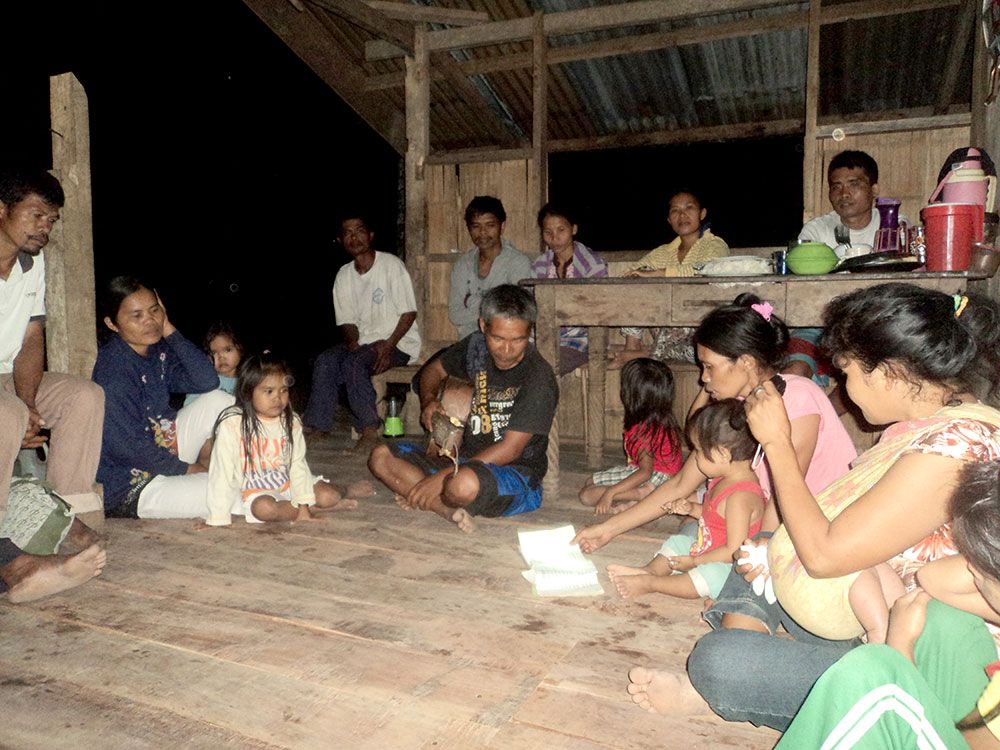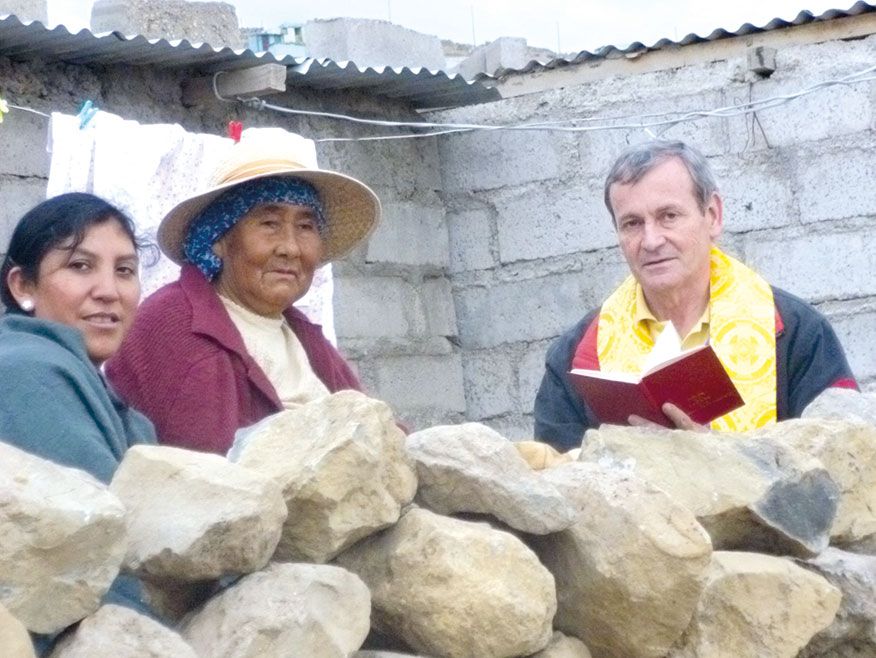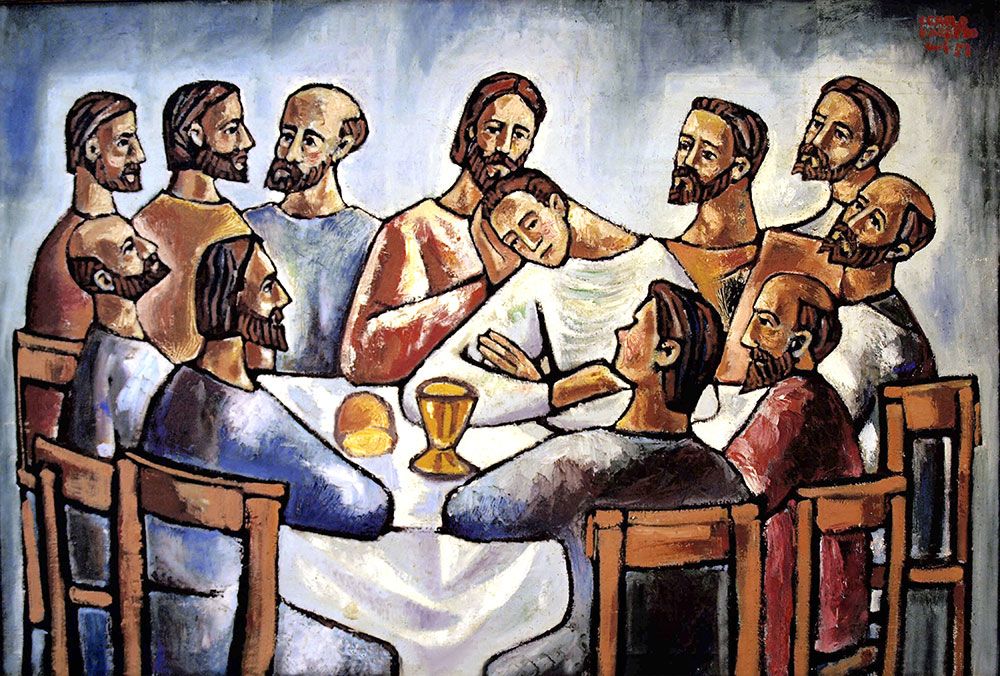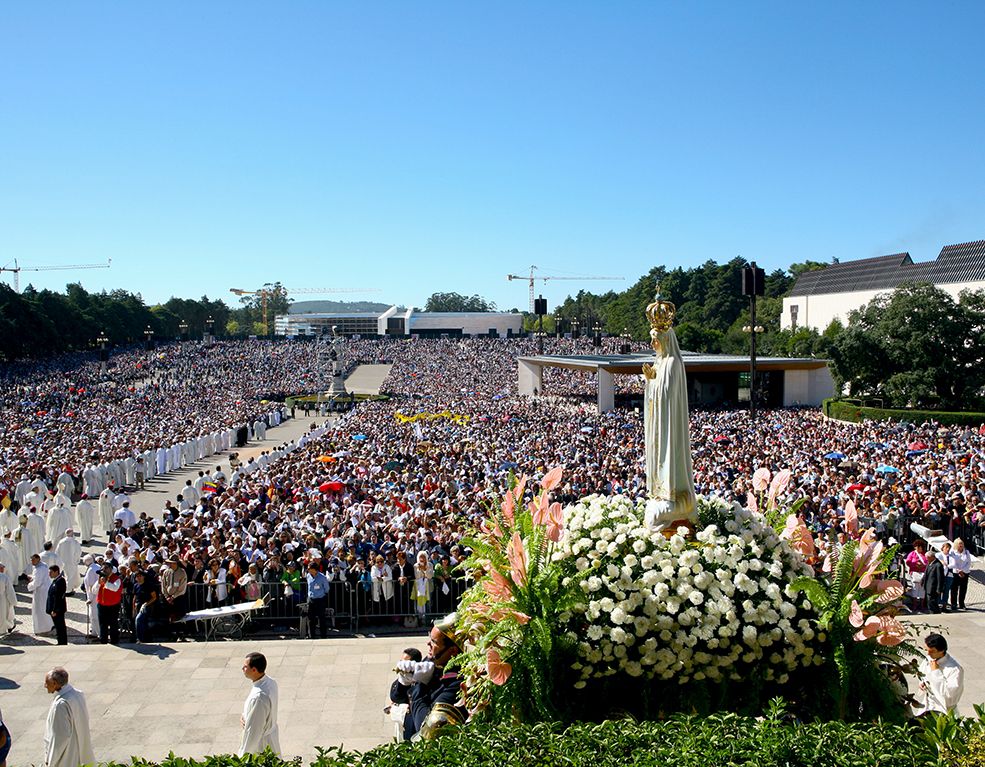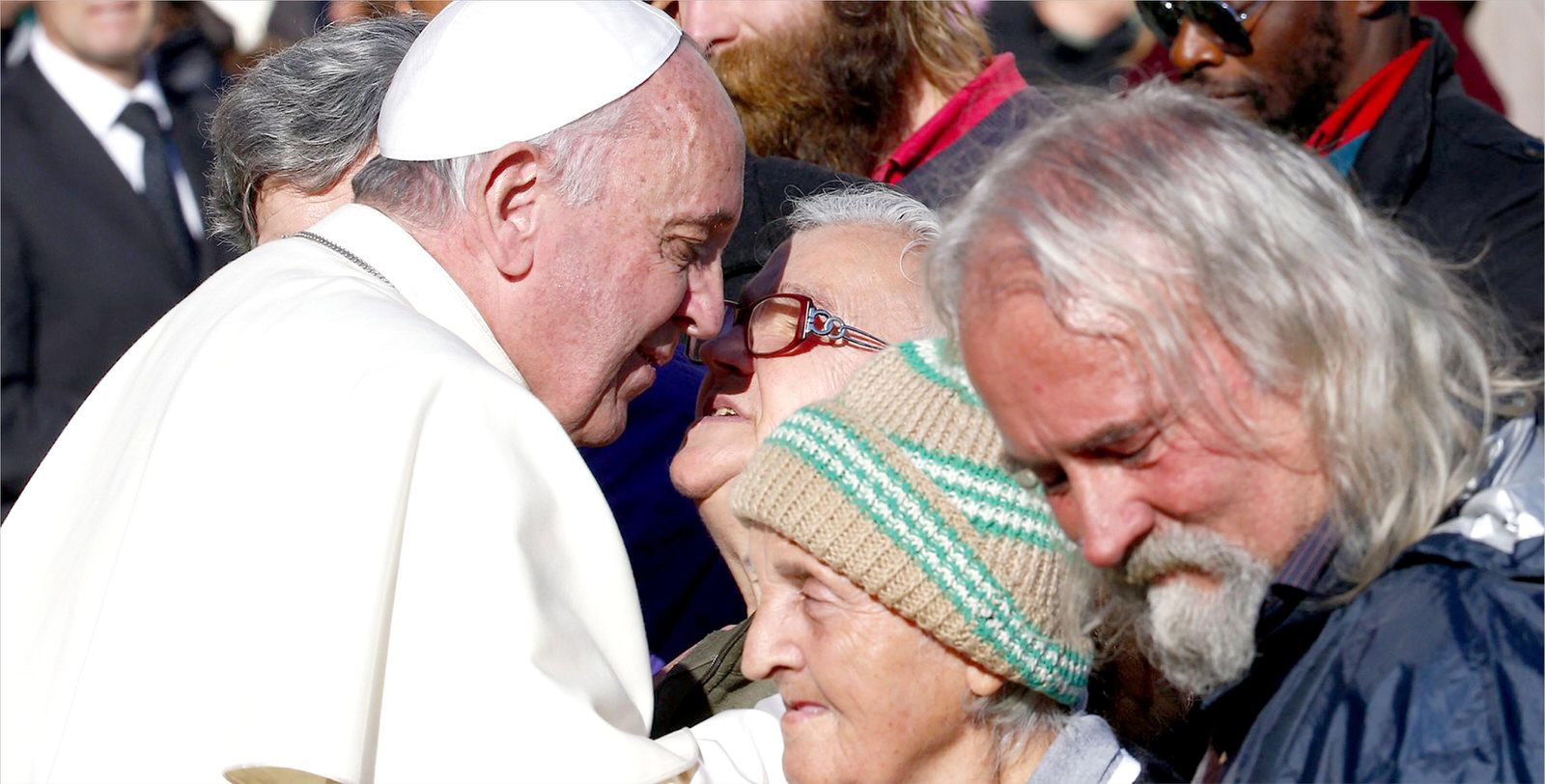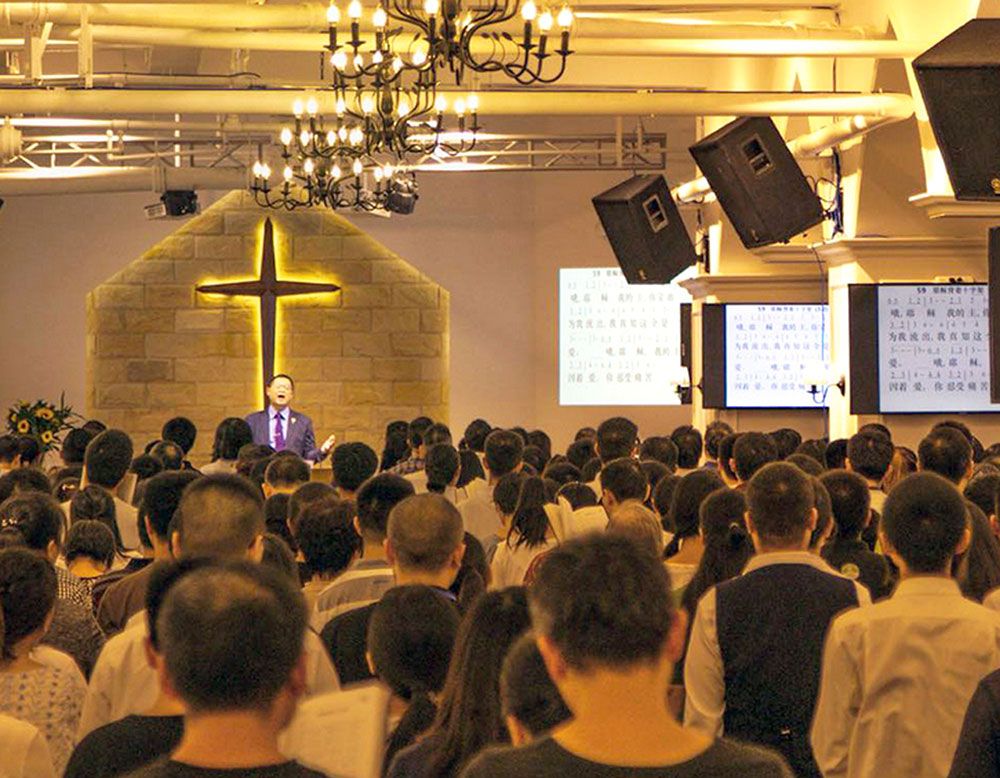First, compassion. This is not merely showing pity or emotional sympathy but expressing mercy which leads to charity. We do something which affects life. We offer life-changing words and actions to make life better and dignified. Jesus always showed His compassionate character.
In the town of Nain, there was a dead man, the only son of his mother who was a widow. And Jesus “had pity on her.” His followers witnessed how Jesus “had compassion on them for they were like sheep without a shepherd” (Mk 6:34). During His interaction with the people, Jesus felt their dire needs. To those who grieve, He grieves with their lost. He suffered with them. He did something for them. Jesus was truly concerned. He really cared.
The compassion of Jesus
The passion of Jesus is His sufferings. It is His sacrifices. His passion is His death. The prefix com, from which the word ‘compassion’ comes, means ‘being with’ or ‘being together.’ Thus, compassion means ‘to be with the one who suffers,’ ‘to be united in this person’s sacrifices.’
We show compassion when we are with the person in what he feels or experiences. We are united with him in what he is going through. And we, then, act and respond in accordance with his needs and situation.
We see compassion in our parents and teachers. On the one hand, we are aware of the huge sacrifices that our parents undertake in order to rear us properly and provide us good education. And because we share with their hardships, we strive to achieve their dreams for us, and not waste all their efforts to make these possible.
On the other hand, we also see the huge challenges that our teachers face in teaching us and making us learn. And because we share and understand their difficulties, we try our best to be diligent in our studies and not waste our time in aimless activities, like sleeping in class and playing truant.
Our parishes always extend the invitation to us to be more involved in activities that nurture our spirituality and sense of Church and community through mandated organizations. In our desire to share with the Church’s mission, we contribute our time and talent and join in church programs and projects.
The word passion in ‘compassion’ refers to the dedication that is driven by an intense desire. Thus, when we show compassion, it should not be half-hearted or just to show that we are there. It is showing compassion with full concern. We give our best and we give to the maximum. Let us not be contented with less, or with a pittance. Compassion says that we must do and give to the utmost, share and serve to the best of our ability and capacity and not to count the cost.
Sense of belonging
Second is communion. Compassion is not only about being united or being one with another. Compassion is sharing in common where fellowship is nurtured and partnerships are established. There arises a close relationship where words and actions are shared and exchanged with full understanding of one another, in peace and harmony. Here, no one is alienated; no one is excluded. And the parish is not exclusive to a particular group. It allows a person to feel he or she is welcome and accepted; where all experience a sense of belonging.
We cannot deny that some have fallen out and left the church. We also admit that some Catholics are in church only for their baptism, confirmation, first communion, wedding and, unfortunately, funeral. In the spirit of communion, the parish must seek them out – the lost, the fallen, the lukewarm and the disenfranchised. The parish must bring them back to the fold and welcome them to its sacramental celebration and pastoral activities.
The parish should draw all its members in and invite those who are in the peripheries, giving them formation so everyone feels part of the community, a communion of active and caring members. As parish priests, have we asked ourselves these questions: have I brought someone new to our parish church? Do I welcome parishioners with my smiles and with concern and humble disposition? Do my words inspire them to come and work together? Do my works build unity and harmony among us?
We are one parish
Lastly is collaboration. Our faith is not a contest. Our worship is not about competition. We are one, as one body, one parish, one people. The parish is not a platform where each one tries to upstage the other. It is not for popularity; for showing off. We, in the parish, are not competitors or rivals in some sort of game or contest. There should be no cause for fighting and rivalry.
Instead, we should be arm in arm, shoulder to shoulder in working together as a community, not individually or as a one-man army.
The parish revolves around its members. Each member is precious, important and valuable. Everyone is needed and has something special to contribute. Therefore, collaboration is needed. Cooperation is expected of one another. If we look closely at the words collaboration and cooperation, we see the Latin words, labora and opera.
These words, labora and opera, in English, means work. We have work to do. We have to labor. We have to act, to operate. In short, we have to work. The prefix co means ‘with’ or ‘together with another or with someone.’
This other is your collaborator, your cooperator. In other words, he or she is your co-worker; he or she is your partner in your work or task, your teammate. Thus, you look out for each other while sharing work, contributing productively, and not slacking or not doing the assigned task, or leaving the other behind. To collaborate and to cooperate is to work in tandem, in synergy and for a common purpose.
Collaboration
The spirit of collaboration prompts us to persevere in our parish life and not to withdraw or fall out just because we do not receive recognition or we do not feel appreciated. Let us not go back into our shells just because we hear negative remarks. Let us not absent ourselves from the group just because we are not given the roles and positions we are aiming for. Let us not be affected or irritated when our seats in the church are taken or unavailable to us.
When we go to the parish church, we go to God and for His people, not just to feel good for ourselves. When we work for the parish church, we offer our labors to God and for the good of His people, not to be treated or regarded in a special way.
In the parish church, we consider ourselves as one with the others, standing before God, not as superior or model to be praised or imitated. We must accept our commonality, our being like the other as we stand before God the Father and Creator, to pray to Him and to praise and worship Him. Then, we can share with one another His grace and goodness to all. In this way, there will be compassion for one another, starting with us. United and in communion with one another, we become collaborators in all of the parish celebrations and co-operators of God’s saving works for others.
Everything for god
Let me tell you this story from a bishop. He narrated that, after looking at the church, he realized that he had forgotten to express his gratitude to the lady in his parish who prepared the flowers for the altar. So after celebrating the Holy Mass, he looked for the lady so he could profusely thank her. But after thanking her, the lady replied, “Your Excellency, there is no need to thank me. I arranged the flowers for God, and not for you.”
How is our parish church? Let us make sure that, in our parish, everything that we do, give and say must be for God.
Article first published in Boletin Eclesiastico de Filipinas, May-June 2017.





